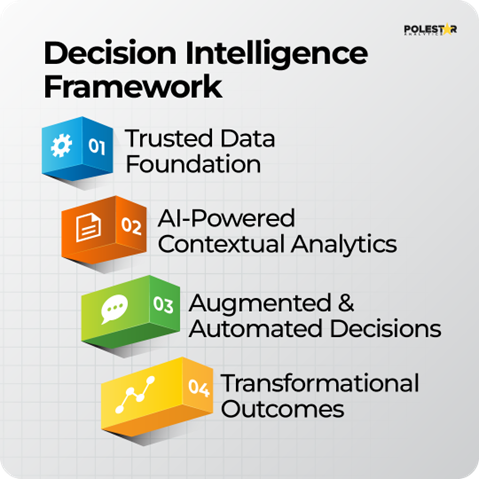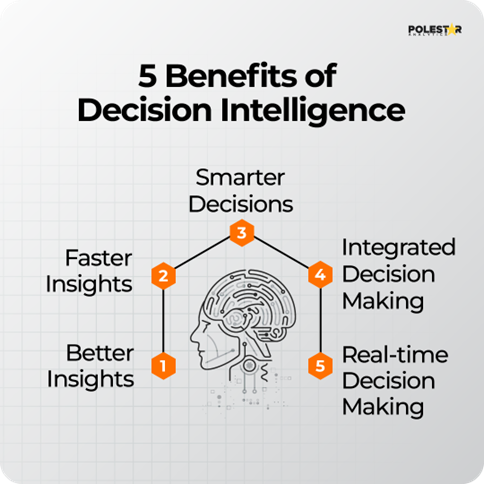
What is Decision Intelligence?
Decision intelligence is a discipline that applies data science, artificial intelligence and analytics to understand and improve the decision-making process.

Decision intelligence is a discipline that applies data science, artificial intelligence and analytics to understand and improve the decision-making process.
Sign up to receive latest insights & updates in technology, AI & data analytics, data science, & innovations from Polestar Analytics.
Decision intelligence is a discipline that applies data science, artificial intelligence and analytics to understand and improve the decision-making process. The idea is to shift from human-based decisions with HITL intelligent machines, to improve the decision quality.
The market size is expected to increase at CAGR of 16.9% from USD 19.38 billion in 2025 to USD 57.75 billion by 2032. Let’s dig a bit deeper.

| Basis | Artificial Intelligence | Decision Intelligence |
|---|---|---|
| Goals | To create intelligent systems that behave and think like people. | Decision Intelligence (DI) advances Artificial Intelligence (AI) to enhance decision-making. |
| Strength | It recognizes patterns, solves issues, comprehends language, gains knowledge from experiences, and can make decisions. | It uses AI tools like data ingestion, entity resolution, and graph building to create a strong foundation of clean, connected data. |
| Results | It generates task automation and intelligent behavior. | Faster decision-making, better productivity and bottom line savings. |

Decision Intelligence (DI) offers benefits like:
All this leading to faster, more accurate decisions, improved efficiency, reduced costs, and enhanced risk management.